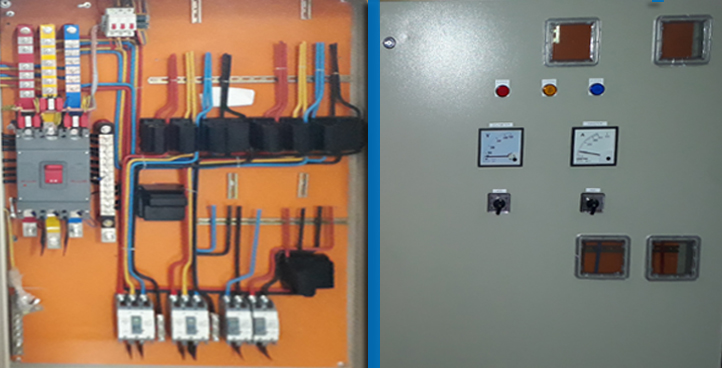Metering Panels In the world of electrical systems, metering panels play a fundamental role in accurately measuring, monitoring, and managing energy consumption. From industrial facilities to commercial buildings and residential complexes, metering panels provide valuable data and insights that empower informed decision-making, energy efficiency, and cost savings. In this blog post, we will explore the significance of metering panels, their functionalities, and how they contribute to optimizing energy management in various applications.
Understanding Metering Panels:
Metering panels, also known as energy meter panels or distribution metering panels, are electrical panels that house energy meters and associated equipment. These panels are responsible for measuring and monitoring various electrical parameters, including voltage, current, power factor, energy consumption, and demand. Metering panels provide real-time data on energy usage, allowing users to track and analyze patterns, identify inefficiencies, and optimize energy consumption.
Industrial Applications:
In industrial settings, where energy consumption is a significant cost factor, metering panels play a crucial role in energy management. They enable detailed monitoring of energy usage across different sections of a facility, such as production lines, machinery, and auxiliary equipment. By identifying energy-intensive processes or equipment, metering panels help operators implement energy-saving measures, optimize load distribution, and reduce peak demand charges. Accurate data from metering panels also facilitates energy auditing and compliance with regulatory requirements.
Commercial Buildings:
Metering panels find wide application in commercial buildings, including offices, shopping malls, hotels, and hospitals. They enable precise measurement and monitoring of energy consumption for lighting, HVAC systems, elevators, and other electrical loads. Metering panels provide building managers with insights into energy usage patterns, enabling them to identify opportunities for energy conservation, implement demand response strategies, and optimize equipment maintenance schedules. Sub-metering individual tenants or departments within a building allows for fair and transparent billing based on actual usage.
Renewable Energy Integration:
As the world shifts towards sustainable energy sources, play a critical role in integrating renewable energy systems, such as solar panels and wind turbines, into the electrical grid. measure the energy generated by these sources, enabling users to track the contribution of renewable energy and monitor the performance of the system. This information assists in optimizing the utilization of renewable energy, assessing the return on investment, and ensuring the stability of the grid.
Smart Grid Integration:
are an essential component of the smart grid infrastructure. By integrating advanced metering infrastructure (AMI) and communication technologies, enable bidirectional flow of information between utilities and consumers. Smart meters withinprovide real-time data on energy consumption, allowing consumers to monitor usage, manage demand, and participate in demand response programs. Utilities benefit from improved load forecasting, outage detection, and load balancing capabilities, leading to a more reliable and efficient electrical grid.
Data Analytics and Energy Management Software:
are not limited to simply measuring and displaying energy data. They often integrate with advanced data analytics and energy management software platforms, providing users with comprehensive insights and tools for energy optimization. These platforms offer features such as energy dashboards, automated reporting, anomaly detection, and energy benchmarking, enabling users to identify trends, set energy goals, track progress, and implement strategies for continuous improvement.
Conclusion:
serve as the backbone of energy management systems, empowering users to monitor, analyze, and optimize energy consumption. From industrial facilities to commercial buildings and renewable energy integration, provide accurate data, enabling informed decision-making, cost savings, and environmental sustainability. As technology advances, will continue to play a vital role in shaping the future of energy management, facilitating a smarter and more efficient use of electrical resources.
to watch POWER FACTOR CORRECTION PANELS click here.



